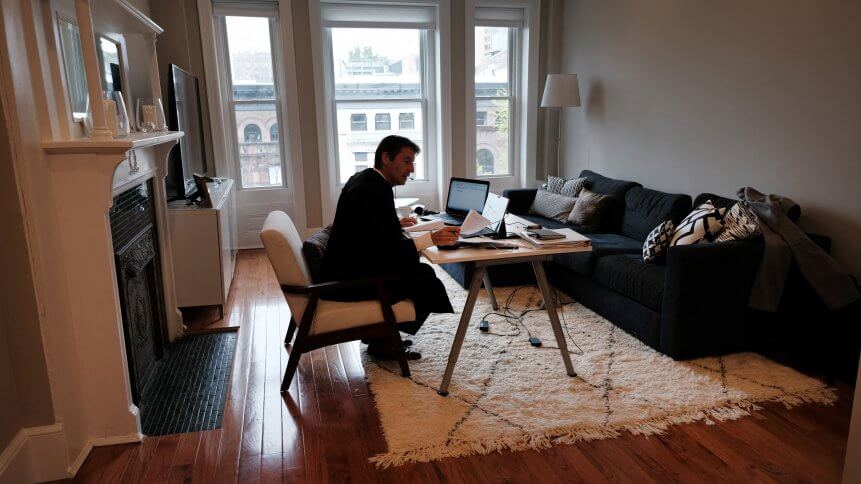Data scientists say that remote working is here to stay

- Researchers found that remote working opportunities rose from 4% before the pandemic to 9% at the end of 2020
- 74% of workers have said that working from home was better for their mental health post-pandemic
- Reports have also concluded that remote and hybrid work is the new normal, and leaders must rethink their workplace culture
The rise of digital nomads, freelancers, and remote workers has spurred the growth of co-working spaces. The sector is filling a void created by the flexibilization of work during the pandemic, which has led to more people working remotely.
Around 4.5 million Americans left their jobs in November last year in the face of the “Great Resignation,” citing being overworked, underpaid, lacking benefits, and preferring to work from home or remotely.
For many workers, the idea of working remotely is a dream come true. However, many employers resist the change, insisting that employees return to the office. This could change as data scientists project that remote working is here to stay.
Remote working here to stay
According to projections by Ladders, 25% of all professional jobs in North America will be remote by the end of 2022, and these opportunities will continue to increase through 2023.
The researchers found that remote opportunities rose from 4% before the pandemic to 9% at the end of 2020. A study from Stanford University also found that employees who work remotely are just as productive, if not more so, than their office-bound counterparts.
Remote working – better for mental health
According to Owl Labs, in 2021, 90% of the 2,050 full-time remote workers surveyed said they were as productive working remotely as when they toiled in the office.
Another 74% said that working from home was better for their mental health after the pandemic, and 84% reported that working remotely would make them happier, with many even willing to take a pay cut.
A recent survey by Ergotron corroborated the Owl Labs study by revealing that workers are experiencing benefits to their physical and mental well-being as they have acclimatized to hybrid and remote office environments since the onset of the pandemic.
Leaders accountable for better workplace
81.5% of workers feel more empowered to hold their leaders accountable for a better workplace in the new year, according to Workhuman’s January 2022 Human Workplace Index.
Meanwhile, over half (56%) said they would only wait 30 to 60 days for employers to make needed changes before they consider leaving. Even though some of the most successful companies in America rely heavily on a remote workforce, many businesses still consider it a luxury.
Concerns about remote working
Organizations are now consistently being pushed to embrace remote workers and new technologies. There are some challenges that businesses face and one of them is cybersecurity measures.
Businesses are wary as remote workers are also known to use unsecured Wi-Fi, personal devices, and other unauthorized applications, expanding the threat surface. Thus, increasing loopholes of which cybercriminals can take advantage.
Research from Tessian highlighted that remote workers allow household members to access corporate devices for personal use, and 82% of workers admit to reusing passwords.
In addition, a recent Northeastern University report found that more than half of C-suite executives were concerned about their workforce’s ability to be innovative and creative in a remote work environment. Many felt that creativity came from collaboration and social interaction, both elements not present in most remote work environments.
This is not the case, as the report has shown that when compared with teams that work remotely versus teams that work face to face, there is no difference concerning team performance.
However, it is clear that remote working is here to stay. Reports have concluded that remote and hybrid work is now the new normal, and leaders must rethink their workplace culture and how to secure it.









